আজিজা রহমান সিলভিয়া বাংলাদেশের প্রথম মহিলা টেক্সটাইল প্রযুক্তিবিদ। তিনি ১৯৮১-৮২ শিক্ষাবর্ষে ঢাকা বিশ্ববিদ্যালয়ের অধীনে বাংলাদেশ কলেজ অফ টেক্সটাইল ইঞ্জিনিয়ারিং এন্ড টেকনোলজি থেকে চার বছরের টেক্সটাইল প্রযুক্তি ডিগ্রি অর্জন করেন। বর্তমানে তিনি বাংলাদেশ টেক্সটাইল মিলস্ কর্পোরেশনের উপ-মহাব্যবস্থাপক হিসেবে কর্মরত আছেন।
তার গবেষণা ও পেশাগত অভিজ্ঞতা প্রধানত টেক্সটাইল প্রক্রিয়াজাতকরণ, কাপড়ের উৎপাদন ও গার্মেন্টস শিল্পে রয়েছে। বিশেষ করে তিনি টেক্সটাইল খাতের “ব্যাকওয়ার্ড লিঙ্কেজ” সমস্যা চিহ্নিত ও সমাধানে উদ্যোগ গ্রহণ করেছেন, যা দেশীয় কাঁচামালের ঘাটতি এবং প্রোডাকশন খরচ কমানোর ক্ষেত্রে গুরুত্বপূর্ণ ভূমিকা রাখে। বাংলাদেশে টেক্সটাইল শিল্পের উন্নয়ন, রপ্তানি বৃদ্ধির পাশাপাশি অভ্যন্তরীণ চাহিদা পূরণে তার অবদান বিশেষভাবে উল্লেখযোগ্য।
তিনি ঢাকায় বসবাস করছেন এবং দেশের টেক্সটাইল খাতের দীর্ঘমেয়াদী উন্নয়নের জন্য কাজ করে যাচ্ছেন।
💬 প্রশ্নোত্তর পর্ব:
প্রশ্ন: শুভেচ্ছা ও অভিনন্দন। পদোন্নতি ও নতুন দায়িত্ব কেমন লাগছে?
উত্তর: অবশ্যই আনন্দের, যে কোনো প্রাপ্তিই আনন্দদায়ক। কেবলমাত্র দূর্নাম ছাড়া। তাই নতুন পদবী ও দায়িত্ব সবকিছুই খুব ভালো লাগছে।
প্রশ্ন: বগুড়ার মেয়ে তুমি। তোমার শৈশব কেমন কেটেছে?
উত্তর: বগুড়ার মেয়ে হলেও শৈশব, কৈশর, যৌবন এবং বর্তমান বসবাস ঢাকাতে। তাই আর দশ-পাঁচটা মেয়ের মত আমার শৈশব আনন্দদায়ক ও স্মৃতি রোমাঞ্চকর ছিল।
প্রশ্ন: টেক্সটাইল প্রযুক্তির পেশা কেন বেছে নিলে?
উত্তর: ছোটবেলা থেকে আঁকাআঁকিতে হাত ছিল, তাই আর্কিটেকচারে পড়ার ইচ্ছে ছিল। তবে সেখানে চান্স না পাওয়ায় এবং ডাক্তারিতে চান্স থাকলেও ঢাকার বাইরে যেতে না চাওয়ায়, বাবার পরামর্শ অনুযায়ী টেক্সটাইল ইঞ্জিনিয়ারিং-এ ভর্তি হলাম। প্রথম মহিলা হিসেবে এই লাইনে পড়াশোনা করেছি এবং পেশাগতভাবে সফল হয়েছি।
প্রশ্ন: বাংলাদেশের প্রায় ৮০% রপ্তানি আয় আসে টেক্সটাইল ও পোশাক শিল্প থেকে। এক্ষেত্রে আমরা কি চ্যালেঞ্জের মুখোমুখি?
উত্তর: বাংলাদেশের পোশাক শিল্প দেশে ও বিদেশে বিভিন্ন সমস্যার মুখোমুখি। প্রতিবেশী দেশের সঙ্গে গুণগত মান ও ডিজাইনে প্রতিযোগিতা, বিভিন্ন টেক্সটাইল ম্যাটেরিয়াল ব্যবহার এবং বন্ধ কোটাভিত্তিক ব্যবসা চ্যালেঞ্জ হিসেবে কাজ করছে। এছাড়া দেশের অভ্যন্তরে ব্যাকওয়ার্ড লিঙ্কেজ সমস্যা রয়েছে, যা সমাধান না হলে রপ্তানি বৃদ্ধি সম্ভব নয়।
প্রশ্ন: এসব সমস্যাকে কিভাবে সম্ভাবনায় রূপ দিতে পারি?
উত্তর: সরকারী ও বেসরকারি উদ্যোগ নিতে হবে। নতুন স্পিনিং মিলস, পরবর্তী চেইন প্রসেস অনুযায়ী ফ্যাক্টরি স্থাপন এবং প্রয়োজনীয় পরিকল্পনা গ্রহণ করতে হবে। জোন ভিত্তিক টেক্সটাইল সেক্টর যেমন নীটিং, উইভিং, ডাইং ইত্যাদি ফ্যাক্টরিগুলো নির্দিষ্ট এলাকায় গড়ে তুললে প্রোডাকশন খরচ কমানো সম্ভব। গবেষণা ও উদ্ভাবনের মাধ্যমে আরও উন্নতি সম্ভব।
প্রশ্ন: বাংলাদেশের টেক্সটাইল সেক্টরে উন্নতির জন্য কোন পরামর্শ?
উত্তর: টেক্সটাইল খাত অত্যন্ত সম্ভাবনাময়। আগামী দশ বছরে এ খাত দেশের অভ্যন্তরীণ চাহিদা পূরণ ও রপ্তানি বৃদ্ধিতে গুরুত্বপূর্ণ ভূমিকা রাখবে। নতুন মিল ও ফ্যাক্টরি গড়ে উঠবে এবং শিল্পের সম্প্রসারণ হবে।
আজিজা রহমান সিলভিয়ার দৃষ্টিভঙ্গি ও অবদান বাংলাদেশের টেক্সটাইল শিল্পের সম্ভাবনা ও প্রাসঙ্গিকতার ওপর নতুন আলো ফেলে। তার পরিকল্পনা ও উদ্ভাবনী প্রচেষ্টা দেশের টেক্সটাইল খাতকে আরও শক্তিশালী এবং গুণগতভাবে উন্নত করার ক্ষেত্রে গুরুত্বপূর্ণ। biggani.org টিম তার ভবিষ্যৎ উদ্যোগের জন্য শুভকামনা জানাচ্ছে এবং আশা রাখছে, তার কাজ বাংলাদেশের তরুণ বিজ্ঞানীদের অনুপ্রেরণা হবে।
Unlocking the Potential of Bangladesh’s Textile Industry – A Conversation with Aziza Rahman Sylvia
Aziza Rahman Sylvia is recognized as Bangladesh’s first female textile technologist. She began her academic journey in 1981–82 at the Bangladesh College of Textile Engineering and Technology, under Dhaka University, completing a four-year degree in textile technology. Currently, she serves as the Deputy General Manager at Bangladesh Textile Mills Corporation.
Her professional expertise lies in textile processing, fabric production, and garment industry management. She has focused on addressing challenges such as “backward linkage” in the supply chain, helping reduce reliance on imported raw materials and optimizing production costs. Her contributions play a crucial role in strengthening both the domestic and export-oriented textile sectors of Bangladesh. Based in Dhaka, she continues to work toward long-term development and modernization of the country’s textile industry.
💬 Q&A Session:
Q: Congratulations on your promotion and new responsibilities. How does it feel?
A: It is certainly a joyful experience. Every achievement is gratifying, and apart from reputation issues, I am very pleased with my new designation and responsibilities.
Q: You are originally from Bogura. How was your childhood?
A: Though I am from Bogura, I spent my childhood, adolescence, youth, and present life in Dhaka. Like many other girls, my early years were filled with joy and memorable experiences.
Q: Why did you choose a career in textile technology?
A: I had a talent for drawing from a young age and initially planned to study architecture. However, I did not get a chance there, and although I could have pursued medicine, it required leaving Dhaka, which I did not want. Following my father’s advice, I enrolled in textile engineering. Being the first and only female student at the time, I studied well and later pursued a successful career in this field. In retrospect, I feel my father guided me to the right path.
Q: About 80% of Bangladesh’s export revenue comes from the textile and garment sector. What challenges does the industry face?
A: While the garment sector generates the highest export revenue, it faces challenges both domestically and internationally. For instance, competition with neighboring countries in terms of quality, design, and use of textile materials remains significant. Additionally, internal challenges such as backward linkage issues persist, limiting our capacity to meet demand without importing raw materials.
Q: How can these challenges be turned into opportunities?
A: Addressing backward linkage problems requires proactive initiatives from both government and private sectors. This includes establishing new spinning mills, followed by factories along the production chain up to finished garments. Careful annual planning is needed to determine required fabric production and raw materials. Moreover, separating the industry from political influence is crucial. Group or zone-based clusters for knitting, weaving, and dyeing can reduce production costs, and continued research and innovation can further enhance efficiency.
Q: Any advice for improving Bangladesh’s textile sector?
A: The textile sector is highly promising. In the next decade, it will significantly contribute to both domestic demand fulfillment and export growth. I expect that new mills and factories will emerge, the industry will expand, and Bangladesh will continue to strengthen its position in the global textile market.
Aziza Rahman Sylvia’s insights illuminate the immense potential and challenges of Bangladesh’s textile industry. Her vision and strategic planning have contributed to building a stronger, more efficient sector capable of meeting domestic demand while remaining competitive internationally. The biggani.org team extends its best wishes to her for continued success and hopes her work inspires young scientists and engineers across Bangladesh to pursue innovation in the field of textile technology.
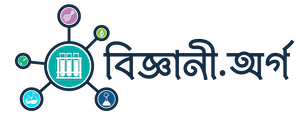
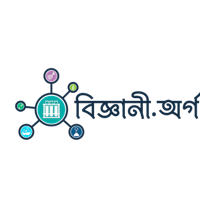
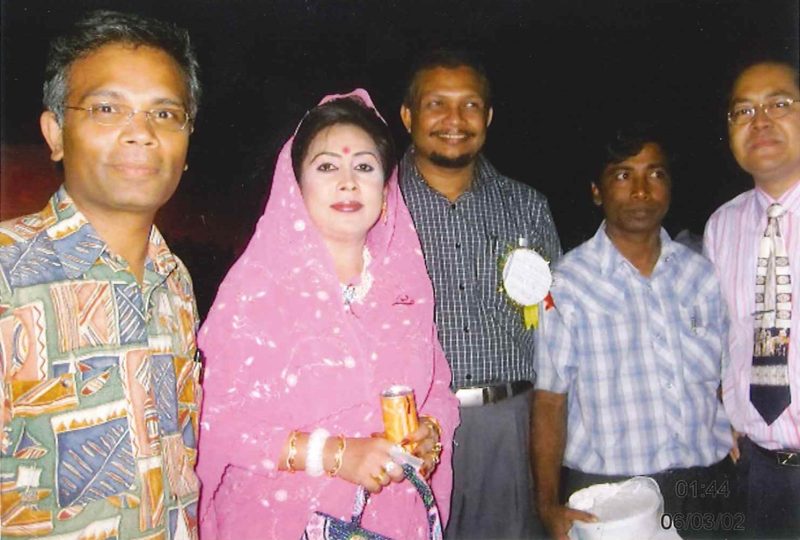



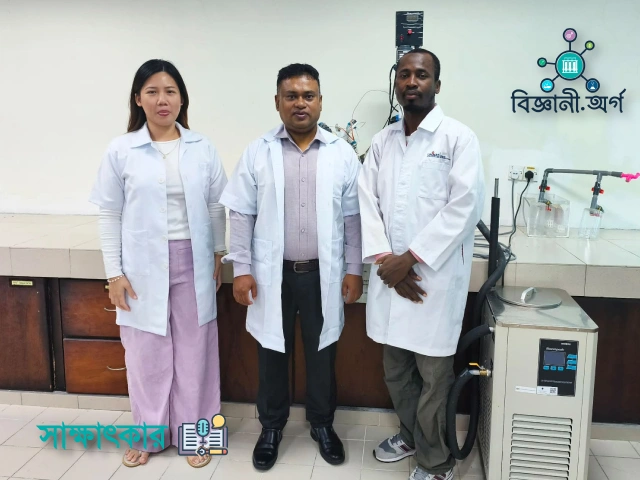
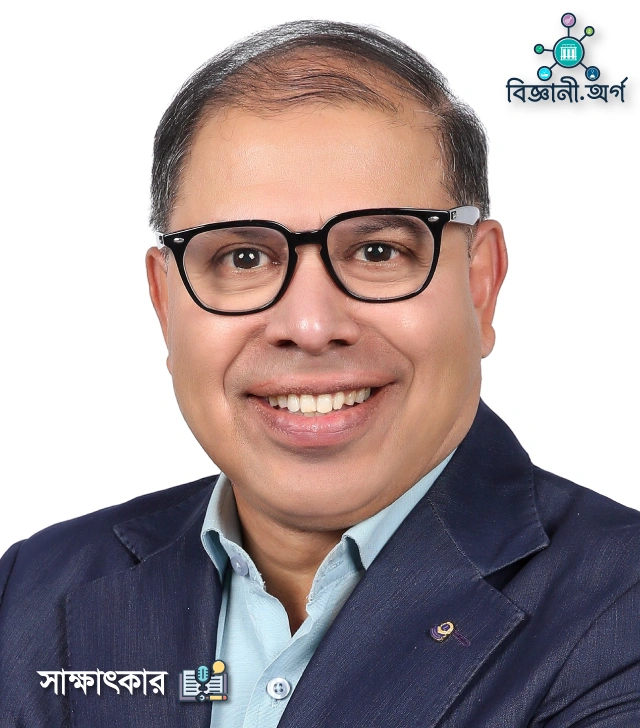
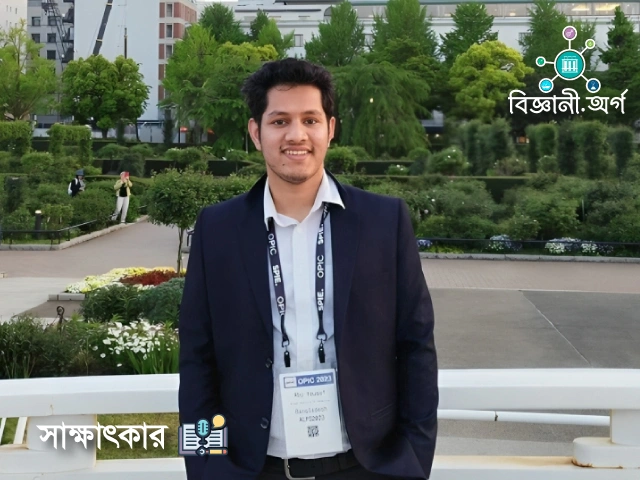
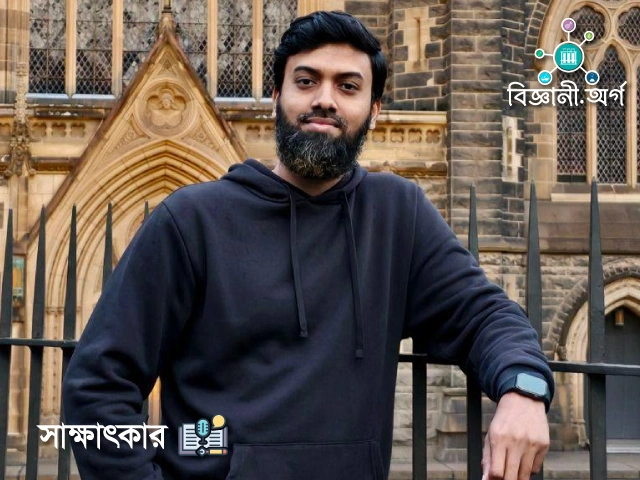

Hellow Madam,
Thanks for your hope on the textile world esp. Bangladesh. yes, we need to keep the textile sector away from the bloody bangladeshi political people!!!
Thanks,
Baezid /Dhaka
সত্যের রূপ একটাই। সত্য অনিন্দ্য সুন্দর। আর স্বপ্নের শক্তি অসীম। আর তাই আমরা আজও এগিয়ে চলেছি-প্রত্যয় ও প্রতিশ্রুতি নিয়ে, সুন্দর আগামীর প্রত্যাশায়।
Thank you very much.
Baezid,
Thanks for your complements! Yes, we can empower our people and politics!!
“amader deshe hobe sei chhele kobe, kothai na borro hoye kaje borro hobe!”
Bolunto ei uktiti kar?
Shuvarthee,
Shafiul.
Salma,
Thanks for your complements! স্বপ্নের শক্তি অসীম।
“amader deshe hobe sei meye kobe, kothai na borro hoye kaje borro hobe!”
Bolunto ei uktiti kar?
Shuvarthee,
Shafiul.
Original ta chilo Kusum kumari debir r eta apnar!
Thanks a lot .
ভাবতে খুব ভালো লাগছে যে আমিও একই প্রতিষ্ঠানের ছাত্র…………আপ্নাদের নেতৃত্বে এই সেক্টরকে এগিইয়ে নেবার আশা রাখি।।
Thanks for your thoughts! We can train our brain to further our talents!
Thanks Mr. Shafiul Islam for his writings.
Aziza madam is a crown woman in this sector who has taken such type of decision to be a textile engineer in that time. Now lots of women are educated in this field.
Anyway please write about
Textile and garment sectors contribute more than 80% of our export but there is no research institute. It’s a shame for us. Lots of foreigners are working in this sector. But we the Bangladeshi are not capable for this? What do you think?
Thanks,
Khokon
Khokon, Thanks for your thoughts. We all can make a difference!
first of all I think I should be sorry, If I make any mistake in my comment. My confusion is all about the industries related to BTMC. Because the private textile industries are making profit with little investment and expanding dramatically, but the industries under BTMC have not seen profit for many years and are almost closed. Why this situation come and can it be overcome?
I am Student of textile engineer.I got inspiration by Aziza silvia because i am bograr chol.
My name is shamim , I am a student of Pabna Textile Engineering College , university of Rajshahi. Now i am in B.Sc. in Textile Engineering final year student., i have a some comments____________ইদািনং আমরা দেখতে পাচ্ছি যে সুতার দাম আগের তুলনাই অনেক বেড়ে গেছে । world market a তুলার দাম বাড়ার কারনে, এছাড়াও আর অনেক কারনে। তাই ৈতির পোশাক এবং দেশও বস্তের দাম ও বহুল অংশে বেড়ে গেছে । আমরা শুলতে পাচ্ছি যে সুতার ৩০ count এর নিচে অনেক সুতা বেশি দামে ,পাশের দেশ India থেকে আমদানি করা হচ্ছে । আমরা জানি India তে উন্নত ম্যাশিন দারা Secondary তুলা কে recycling করে কম কউন্ত এর সুতা কম cost এ ৈতির করছে । এবং world market এ তাদের সুতার প্রসার ঘটছে ।আমরা কি পারি না আমাদের দেশে উন্নত মানের ম্যাশিন আমদেনি করা নতুন নতুন spinning mill established করে Secondary তুলা কে recycling করে কম কউন্ত এর সুতা ৈতির করতে ? এতে দেশে সুতার সরবরাহ বারবে। বেশি দামে সুতা আমদানি ও করতে হবে না।
Greetings Md Mirjahan Khan,
Thank you for your thoughts and concerns. Unfortunately we cannot comment on BTMC’s activity and productivity. But we feel we all can do our part – empower ourselves, dare to dream and exceed expectations.
Greetings Md Didarul Islam Rupon,
Thanks for your wonderful thoughts….
Greetings মোঃ শামীম রেজা,
We appreciate your thoughts. If you really believe in the project, nobody can stop you to go ahead and make a difference. Good luck to your journey. Thanks again.